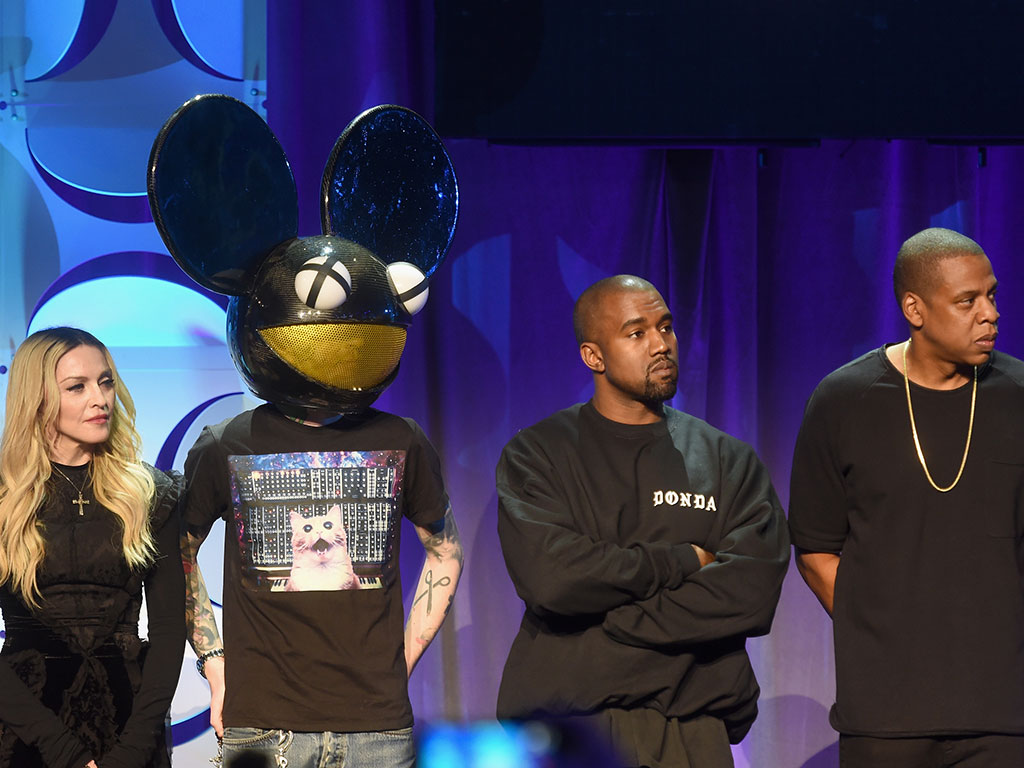Tidal fires two more top executives
A week after it was hit by a $5m lawsuit, the celebrity-fronted music streaming service has let go of its COO and CFO

Celebrity equity holders (l-r) Madonna, Deadmau5, Kanye West and Jay-Z at the launch of the Tidal music streaming service last March. It was pledged the company would pay all artists, producers and writers a higher rate than similar services, but is now being sued over its alleged failure to do so
Jay Z’s music streaming service, Tidal, faces another restructuring following the dismissal of Chief Operating Officer Nils Juell and Chief Financial Officer Chris Hart. Reports of the dismissals first surfaced on February 29, before the company confirmed the news the following day. In the same announcement, Tidal revealed it was moving its operations and accounting departments to New York from Oslo, following its expansion into 46 countries around the world.
In less than a year, three people have held the position of Tidal’s CEO
The news came shortly after Tidal was hit with a $5m lawsuit from Yesh Music Publishing and John Emanuele of US band the American Dollar for licensing 118 songs without permission or payment, while also intentionally miscalculated the number of times the band’s music had been streamed. Tidal’s official response to Fortune said the accusations were without merit.
To add to the firm’s growing list of problems, Tidal’s exclusive release of Kanye West’s latest album The Life of Pablo was swiftly pirated over half a million times in February. The album was also left off the music charts after Tidal’s refused to submit data to the Nielsen ratings service.
A number of top executives have been fired since Jay Z, along with various other high-profile music artists, took control of the company (formerly known as Wimp). In less than a year, three people have held the position of CEO, with Jeff Toig, former Chief Business Officer of SoundCloud, currently at the helm.
Kanye West, Madonna, Daft Punk and Chris Martin are among the celebrity equity holders who joined forces to promote the artist-driven service when it was relaunched as Tidal last March. Jay Z’s pledge at the time was to pay all artists, producers and writers 75 percent of the site’s royalties, but he has come under fire for failure to do so.
The problems continue to come thick and fast. With a lack of business continuity and stability in the midst of territorial expansion, it would seem Tidal’s teething phase is far from over. The celebrity power of Jay Z et al may not prove enough to keep the company afloat without a sound and sustainable business model.













